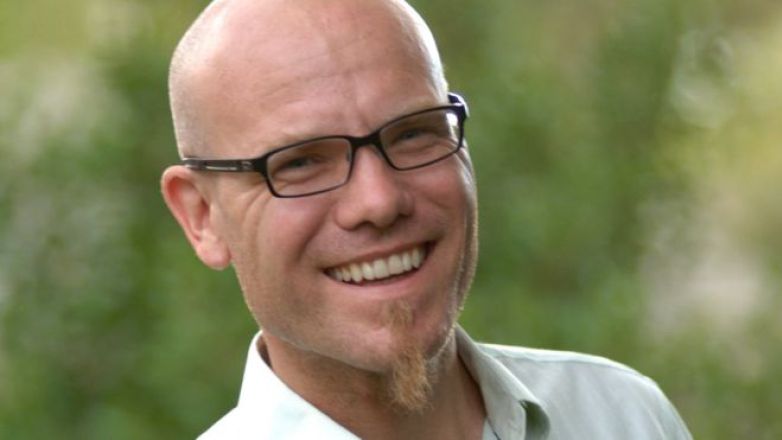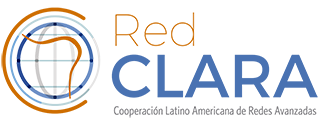His website has his name and there you can find all the posts and studies in which he has worked, his videos, interviews and scientific publications, besides, of course, social network content. Our interviewee is probably the strangest "fish" in the waters of TICAL and the e-Science Meeting because, unlike all those who have passed through the plenary sessions until now, he does not come from the world of ICT or of the "hard" sciences, but from the humanities; in fact he is Professor of Communications at the University of California (Davis, USA). This is one of the activities of Martin Hilbert, Big Data expert who will go to TICAL2018 to share his experience in using the big data for the development of complex models and public policies.
María José López Pourailly
You come from the world of Humanities; journalist, sociologist, Doctor of Economics and Social Sciences. Why and at what time did you start integrating the big data into your work and life?
When I started this work at ECLAC (United Nations Regional Commission for Latin America and the Caribbean), one of the first steps was to create an Observatory for the Information Society (called OSILAC), creating indicators to measure ICT, working together with the NSOs in the region. Some of these indicators were even adopted by the United Nations Statistical Commission for global collection. I realized that when you have data from the world, it is useless to think about how exactly you want to change the world. In doing so, you remain in the world of ideas, without attaching them to reality.
More than once someone may have already said that it seems strange or curious to find a person coming from the world of the Humanities working and making such an interesting and efficient use of the big data for analyzes that are deeply associated with people's lives and the course of social policies. Do you agree that this 'interchange' is curious?
What is traditionally called "humanities" is now becoming science. We, who were an art, became science. Traditionally, when one could explain 15% of the variance in some social / economic / political study, it could be published in the most respected scientific journals in the world. 15%!? How is it possible to make public policies based on the understanding of 15%? We were not science, we were more art than science.
Now, with more than 99% of all technologically mediated information in digital format and 98% mobile penetration worldwide, the digitization of human interaction produces an impressive digital footprint of society. This has transformed the social sciences and economics, traditionally poor in data, into the most comprehensive area of empirical evidence to date. Physicists do not know how many stars there are in the Universe, and biologists do not know where the fish are in the ocean. Our 7.5 billion study subjects all carry a location sensor in their pockets, and we know every second of the day where they are. They record most business transactions with a financial footprint and tell us who their friends are and what they communicate with them. With this we can predict their future actions with an accuracy of 85-90%. For example, knowing to which radio bases your cell phone was connected, I can predict with 90% accuracy where you will be tomorrow afternoon and next year. This begins to be science.
What seduces you most in data analysis work?
Understand society and how it works, to see how we can improve it.
In terms of public policy development and advice to governments in this line, you have been through a long way. From this, how would you explain to the world in which you work the importance of the big data for the generation of policies that affect the lives of all human beings and the ways in which governments can improve the living conditions of its citizens?
Most important when it comes to working with massive data, it's not the data itself, but the algorithms, which summarize the patterns in the data. In other words, it is the knowledge that you can extract from the data. Discover the patterns behind it, see the shadow of the mechanism that created the data, a mechanism that shapes the reality we see. The data is the shadow in Plato's cave. We are interested in what generated the data, the mechanism behind that generation; is the knowledge of how the world works and that is what this current paradigm leads to: knowledge.
We are in transition from the information society to the knowledge society. An algorithm is knowledge. The digital era had three phases, the first was communication (phones and the Internet in the 1990s and 2000), the second, information (social networks and big data), we are now entering the era of knowledge, algorithms (machine learning and artificial intelligence). Development is a process of knowledge. How can you want to improve the living conditions of citizens without knowledge? Today, the five most valuable companies in the world work with this issue. A couple of years ago, these were still oil or industrial giants. Today, however, they are data and machine learning companies. So for me, this question is at the heart of the development of a society.
What is or should be strategic in the management of social networks for university institutions, governments and community organizations?
I think the whole society should reflect a little more on the effective use of social networks. Those more dominant nowadays are not so social; are primarily commercial. Originally, it was a quasi-socialist ambition that led Silicon Valley to create free services for all. And it's true, today you can use Facebook for free, like YouTube. But in the end, to make it viable, they sold themselves out to the commercials and created the most controlling capitalist machine we've ever seen in history. The result has been that all communication between you and me is mediated by ferocious commercial interests.
This is very different from a traditional media model, where you pay a monthly fee to talk on the phone and where there is no distortion, or in the case of public television, which is not the subject of commercial interests, or at least did not depend on that. Facebook and Google are completely dependent on commercials and this does not leave them much flexibility. We have to rethink if it was not better when we paid for the landline, but with the guarantee that no one would distort our communication for commercial purposes.
From a sociological point of view, is it possible to understand the current world without ICT? Why?
At this time, most individuals of the human species entrust their lives to artificial intelligence, every day. For example, relying on the anti-lock braking system in cars (ABS) or on authomatic aircraft pilots. The main source of energy of mankind (the electric grid) is completely in the hands of artificial intelligence; three of every four transactions in the largest homo sapiens stock market (the US market) are executed by automated trading algorithms; and with one in three marriages in the United States starting online, digital algorithms have also begun to play an undeniable role in sexual mating and in the genetic inheritance of mankind.
If you told me, "Martin, we found an alien species, and they delegated to the machines almost all their power distribution decisions, 3/4 of their resource allocation decisions, and an average of 1/3 of their procreation decision, it would be difficult to deny how indispensable these machines are to this species. We are this species. There is no need for a chip in the brain (although it is on the way). On a sociological level, we have merged with artificial intelligence.
What are your expectations regarding the participation in TICAL? What can we expect from your presentation?
I want to learn from your challenges! I just got back from the 6th Ministerial Conference on the Information Society of Latin America and the Caribbean (eLAC2020), which also took place at the Hotel Las Americas in Cartagena. 26 governments, 23 of the region with almost 1,000 delegates, discussed the themes of the sixth version of the eLAC Regional Action Plan. The discussion included topics such as blockchain, Internet of Things and Artificial Intelligence. When I wrote the first version of eLAC on a Sunday afternoon in 2003, I would never have imagined that 15 years later that plan would still exist and that I would worry about issues like that! But the issue is stronger and more important than ever, and there are always new issues on the agenda. So, I'm already looking forward to seeing what I can learn at TICAL2018!
Get to know Martin Hilbert better:
- http://www.martinhilbert.net/category/in-the-news/
- http://www.theclinic.cl/2017/01/19/martin-hilbert-experto-redes-digitales-obama-trump-usaron-big-data-lavar-cerebros/
- http://www.theclinic.cl/2018/04/18/martin-hilbert-escandalo-facebook-estamos-atacando-los-sintomas-no-la-enfermedad/







